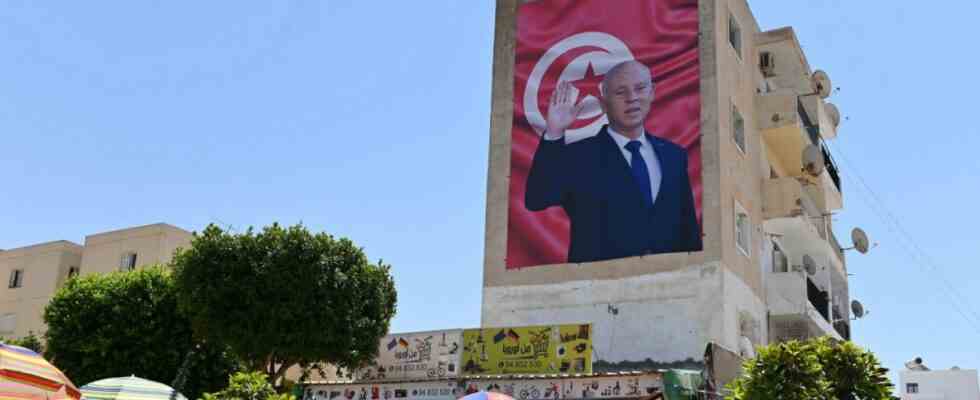Tunisia is getting a new constitution and the president is getting significantly more power: According to the electoral authorities, a clear majority of 94.6 percent of voters voted in favor of the new constitution in a referendum. Despite the low turnout of less than a third of those eligible to vote, it comes into force automatically when the official results are announced.
In the future, there will no longer be any authority in Tunisia that can control the head of state, Kais Saied, or even remove him from office. He is expanding his power at the expense of parliament and the judiciary. With the new constitution, Saied can, for example, appoint and dismiss the government and judges without the need for parliamentary approval. The President has also announced that he wants to change the electoral law.
In Tunisia, the uprisings of the so-called Arab Spring began in 2010. At that time, several countries in the Arab world brought their long-term autocratic rulers to their knees. But Tunisia was the only country in the region that managed to transition to democracy. Critics accuse Saied of wanting to return Tunisia to a dictatorship.
Saied is especially popular in neglected regions
So far, Saied had enforced many far-reaching decisions by decree, thereby circumventing the previous constitution. It was introduced in 2014 and curtailed the president’s powers in favor of parliament and the head of government. The introduction of the new constitution is part of a political restructuring of the country driven by Saied, which also includes general elections towards the end of the year.
A year before the referendum, Saied had deposed the head of government after months of a power struggle with the conservative Islamic party Ennahda and forced parliament to suspend its work. Later he dissolved the parliament altogether. The Islamists of Ennahda, who are considered comparatively moderate, were the strongest force there and condemned Saied’s controversial measures as a “coup d’état”.
However, Ennahda has clearly lost popularity among the population. The party is widely regarded as corrupt, and the record of its parliamentary work as disappointing. President Saied, on the other hand, became a hero through his actions against the government and parliament, especially in regions forgotten by the political elite: hundreds of thousands of people took to the streets across the country and celebrated him as the savior of the nation.
Many hope for a strong president
Today Tunisia is divided between supporters and opponents of the president. There have been repeated protests on both sides for months. The opposition called for a boycott of the referendum and criticized the entire process as illegitimate. Polls had previously pointed to a low turnout of the more than nine million Tunisians called to vote.
Many Tunisians have more urgent concerns than the referendum on the country’s political leadership. Many of them are poorer today than they were in the days of long-time ruler Zine El Abidine Ben Ali, who was ousted from office by the mass protests of 2011. There are great doubts that democracy as a form of government is suitable for overcoming the economic crisis.
With MPs historically more concerned with bickering than much-needed reforms, many people are hoping for a strong president to tackle the problems. However, Saied’s policies have done little to improve the situation. Whether the support for him will last remains questionable.

